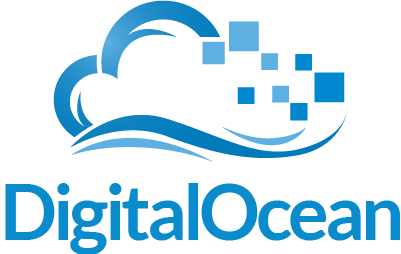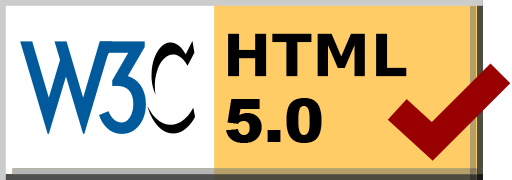Firejail
Posted: 2017-03-22 23:15:59 by Alasdair Keyes
I recently had some problems with some software on my laptop calling home and receiving an invalid response, this then caused the software to stop working correctly. Until this is resolved, I really want to keep on using the software. After testing in a VM with the network disabled, I realised that if it was unable to call home then it continued to work correctly.
A Virtualbox VM works fine and with the Vbox tools installed I have bi-directional copy/paste etc but it's not an elegant solution and the VM overhead is much greater than the native application.
From this I found out about the firejail tool. This is shipped in the standard Ubuntu repos and provides a great deal of sandboxing utilities that I was unaware of.
For me the --net=none argument was suitable. This creates a new unconnected network namespace before executing the app and restricting it's network access to localhost only.
$ firejail --net=none mytroublesomeapp
This is incredibly useful and a tool I will be making much more use of in future.
If you wish to test, try some of the following.
firejail --net=none firefox
firejail --net=none ping google.co.uk
The man pages show what other options are available too. It's well worth a look
If you found this useful, please feel free to donate via bitcoin to 1NT2ErDzLDBPB8CDLk6j1qUdT6FmxkMmNz
bashfunc - Bash Function Library
Posted: 2017-03-08 15:27:11 by Alasdair Keyes
I've been doing some systems scripting in BASH the past couple of days and often find myself recoding the same functionality over and over, not just at work but home too. So I decided that I'd write a library to cover some common functionality I find myself needing.
All functions are explained in the README.md and working examples are in bashfunc_examples.sh in the repo.
It's designed for use with BASH 4 and up. Test it out and let me know if there's other common functionality that could be added. I'm currently adding to it quite frequently as my requirements grow so keep checking for new versions.
https://github.com/alasdairkeyes/bashfunc
If you found this useful, please feel free to donate via bitcoin to 1NT2ErDzLDBPB8CDLk6j1qUdT6FmxkMmNz
RSS Feed
Posted: 2017-02-23 22:44:30 by Alasdair Keyes
I've finally got round to re-implementing RSS feed on the site again. Links are here ^^^. Or here ![]()
If you found this useful, please feel free to donate via bitcoin to 1NT2ErDzLDBPB8CDLk6j1qUdT6FmxkMmNz
Trello all the things
Posted: 2017-02-11 23:36:51 by Alasdair Keyes
I've used Trello a number of times for work projects and I've always enjoyed using it. It's simplicity is the key to it's usefulness.
I've now moved onto using it personally too. Previously my todos were on a Memo app on my phone. Now I mainly use Trello on my laptop, but also the App on my phone for when I'm out and everything goes on there.
The act of moving cards from Todo to Done fills me with more pleasure than it really should.... but it keeps me productive! It's well worth looking to move to it if you're the kind of person that makes a lot of lists.
If you found this useful, please feel free to donate via bitcoin to 1NT2ErDzLDBPB8CDLk6j1qUdT6FmxkMmNz
MySQL encrypted client password storage
Posted: 2017-02-10 14:27:55 by Alasdair Keyes
For years I've been using MySQL's ~/.my.cnf file to automatically manage logins for databases. However it's never sat well with me due to the fact that the file is plain text and even though you can restrict access with 0600 permissions, it's never good to have a password stored in plaintext.
I've recently been working on a MySQL 5.7 cluster and needed access to the production slave database and this issue raised it's head again. However as of MySQL 5.6, there is the option to store login details encrypted using mysql_config_editor
This tool allows you to setup profiles to access servers and store the details encrypted.
For example my previous ~/.my.cnf/ file might have
[mysql]
username=al
password=ComplexPassword
I could then access mysql like so...
# mysql
mysql>
Now you define a profile so for the above example use
# mysql_config_editor set --login-path=localhost --host=localhost --user=root --password
Enter Password: <enter password>
--login-path is just a name and can be anything you like.
I can now login by specifying the login path
# mysql --login-path=localhost
What's nice is that you don't need to specify all the details, if you had a production and beta environment both with multiple servers you could run the following with different passwords and then supply the hostname on the command line
# mysql_config_editor set --login-path=production --user=root --password
Enter Password: <enter password>
# mysql_config_editor set --login-path=beta --user=root --password
Enter Password: <enter password>
# mysql --login-path=production -h proddb3
mysql>
The data is now stored in ~/.mylogin.cnf and is not readable
# cat ~/.mylogin.conf
<<JUMBLEDMESS>>
If you want to make backups or see what profiles you have, you can use
# mysql_config_editor print --all
[production]
user = root
password = *****
[beta]
user = root
password = *****
Removing profiles is as easy as
# mysql_config_editor remove --login-path=production
If you found this useful, please feel free to donate via bitcoin to 1NT2ErDzLDBPB8CDLk6j1qUdT6FmxkMmNz
TDD Deciphered
Posted: 2017-02-09 12:16:58 by Alasdair Keyes
I recently happened upon this website about how to use TDD when building a project. Although it's written for PHP and PHPUnit, the premise can be applied to any language. The great thing about this site over others is that it actually shows TDD on the lifecycle of a valid project, not just using trivial one off examples.
If you found this useful, please feel free to donate via bitcoin to 1NT2ErDzLDBPB8CDLk6j1qUdT6FmxkMmNz
PHP Apigen
Posted: 2016-12-28 20:34:21 by Alasdair Keyes
After discussions at work on producing code documentation, I was introduced to http://www.apigen.org/.
I'm not quite sure how I've not seen it before, but it is very slick and certainly something I'm going to look at using int he future.
More information about what it does can be seen on their site, but it essentially reads the PHPdoc blocks in your code and outputs to a nice HTML page that you can publish.
The key part is just how easy it is, from the root of your project run
apigen generate --source src_folder --destination public/docs
You can easily add it into a script for jenkins or for local a development branch, add it into the post update/install commands of your composer.json.
If you found this useful, please feel free to donate via bitcoin to 1NT2ErDzLDBPB8CDLk6j1qUdT6FmxkMmNz
Strengthen your PHP Composer dependencies
Posted: 2016-12-21 22:38:22 by Alasdair Keyes
For those of you that use Composer to install and manage dependencies in your PHP App, you may be interested in https://github.com/Roave/SecurityAdvisories.
When updating your dependencies, it will alert if the versions you are using contain known vulnerabilities. It's quite simple in it's operation, the composer.json file populates the conflict key with a list of package versions that are known to be insecure so composer will fail to update.
The list isn't exhaustive, but it contains a number of large packages such as Doctrine, Drupal, Zend, Symfony
If you found this useful, please feel free to donate via bitcoin to 1NT2ErDzLDBPB8CDLk6j1qUdT6FmxkMmNz
Blog update to markdown
Posted: 2016-11-26 12:27:11 by Alasdair Keyes
For the duration of this blog's life the HTML for the post has been stored directly in the database.
I have now decided to move to Markdown as it is so much cleaner and easier to use. I've implemented the PHP Parsedown Library and the existing articles are slowly being migrate to markdown in small batches and the old ones still in HTML... because I really can't face changing all the articles at once. Hopefully if all has gone OK, you won't notice anything (as is mostly the way with IT)
If you found this useful, please feel free to donate via bitcoin to 1NT2ErDzLDBPB8CDLk6j1qUdT6FmxkMmNz
OSX Sierra Upgrade and broken dev tools
Posted: 2016-11-25 13:03:53 by Alasdair Keyes
I upgraded my work Macbook from OSX El Capitan to Sierra after which git started returning a very unfriendly message
$ git status
git xcrun: error: invalid active developer path (/Library/Developer/CommandLineTools), missing xcrun at: /Library/Developer/CommandLineTools/usr/bin/xcrun
It turns out to be an issue with the OSX developer tools installation. Reinstall it with the following (requires sudo password) and you'll be good to go.
$ xcode-select --install
If you found this useful, please feel free to donate via bitcoin to 1NT2ErDzLDBPB8CDLk6j1qUdT6FmxkMmNz
© Alasdair Keyes
IT Consultancy Services
I'm now available for IT consultancy and software development services - Cloudee LTD.
Happy user of Digital Ocean (Affiliate link)

